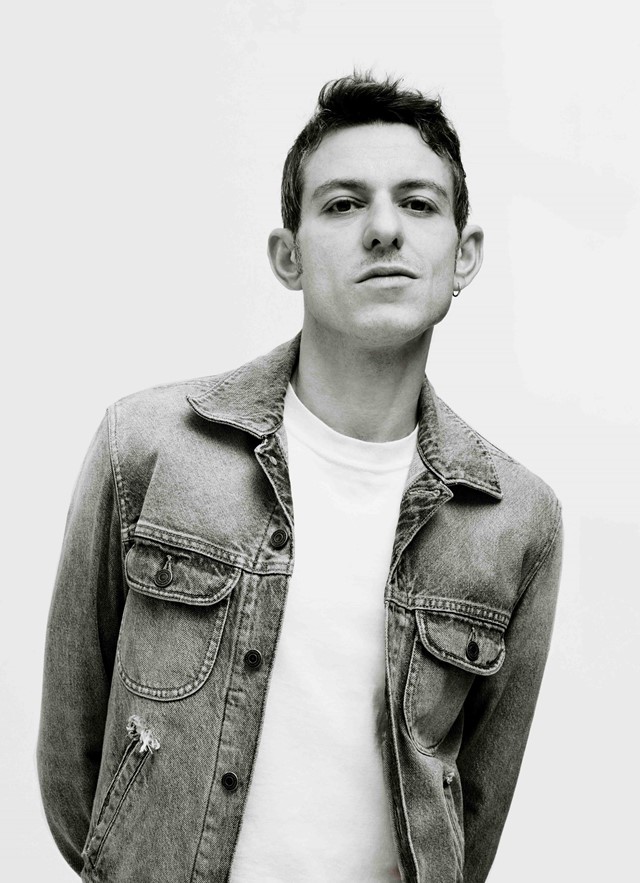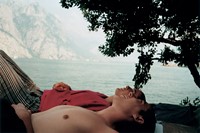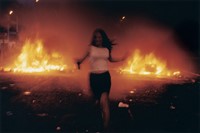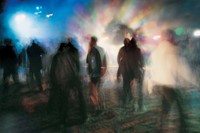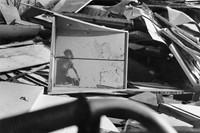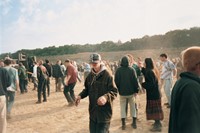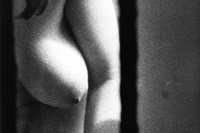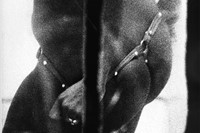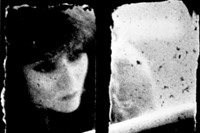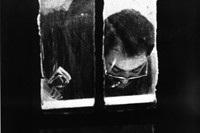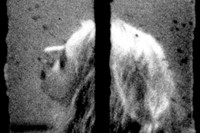As he launches a pop-up store in Paris selling records, rave culture paraphernalia, and rare publications, Nicolas Di Felice shares the five books that made him who he is today
Since he took over the legendary Parisian fashion house Courrèges as creative director, Nicolas Di Felice has generously paid homage to the creative community that animates his lithe, dance-ready vision of the brand’s heritage. In doing so, he has created a universe spanning music, literature, and art that has become an integral part of Paris’ cultural scene – his now-infamous Courrèges Club parties are often credited as helping to revive the city’s underground club scene.
It’s in this spirit of supporting local communities that Di Felice decided to hand over the brand’s shopfront in Paris’ Le Marais neighbourhood to Dizonord, an independent record store, for a seven-week pop-up. By collaborating with Anna Dotigny and Remy Briere on the pop-up’s sleek fit-out, the shop has been transformed into a treasure trove of records (with a focus on electronic and experimental music), rave culture paraphernalia, and rare books and magazines. “I thought that in our little white space, all of the beautiful books and objects would be given the value that they deserve,” says di Felice of the pop-up, “Dizonord is known in the music industry for their passion and their curiosity, and this was an opportunity to make their project known to more people.”
An avid reader, below, Nicolas Di Felice shares the five books that have most influenced his life.
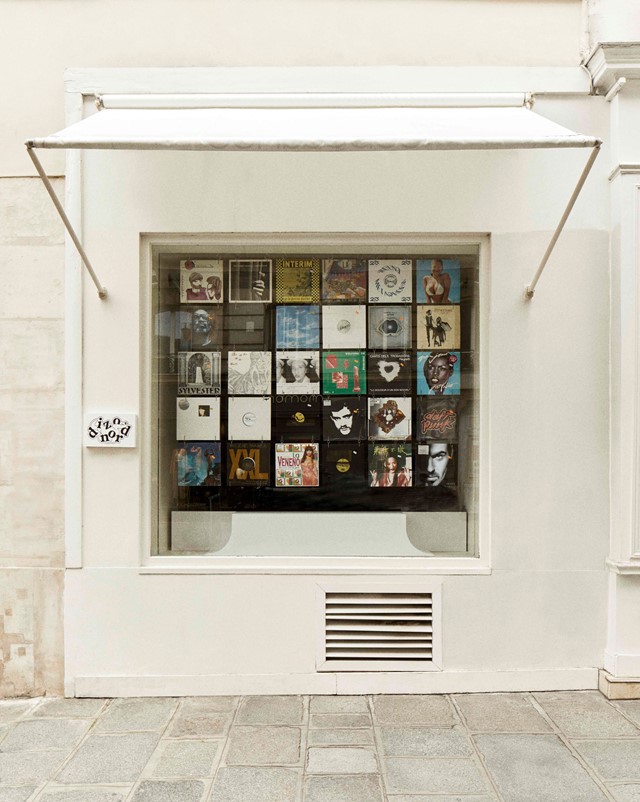
No System by Vinca Petersen (1999)
“Erwan [Sene] offered me this book two or three years ago and I asked ‘Oh, where did you find it?’ Because I didn’t know Vinca Petersen. And he was like, ‘I found this book in Dizonord. Petersen was a friend of Corinne Day and I know that you love Corinne Day.’ I love this book because they are images that I know and lived when I was younger – I’ve been going to music festivals since I was 14. You know, music festivals are really messy. But people are in search of freedom. And I love the contrast between the beauty and the purity of these moments, and the chaotic club space. Vinca is quite romantic in the way she takes pictures, full of gentleness and sweetness. Yes, it’s music and a music festival, but they are also moments of love.”
Read AnOther’s interview with Vinca Petersen here.
A Lover’s Discourse: Fragments (Fragments d’un discours amoureux) by Roland Barthes (1977)
“A friend offered me this book when I was a bit sad and struggling in my love life … that was like ten years ago. I read it in one day. It really helped me because there are so many different passages on different subjects related to love and relationships – and some passages really spoke to me at that precise moment when I received it. It really helped me to not feel alone, to see something written in black-and-white that echoes what you are living … it felt really good. So I fell in love with this book. And actually I think that I’ve offered it to seven other people now.”
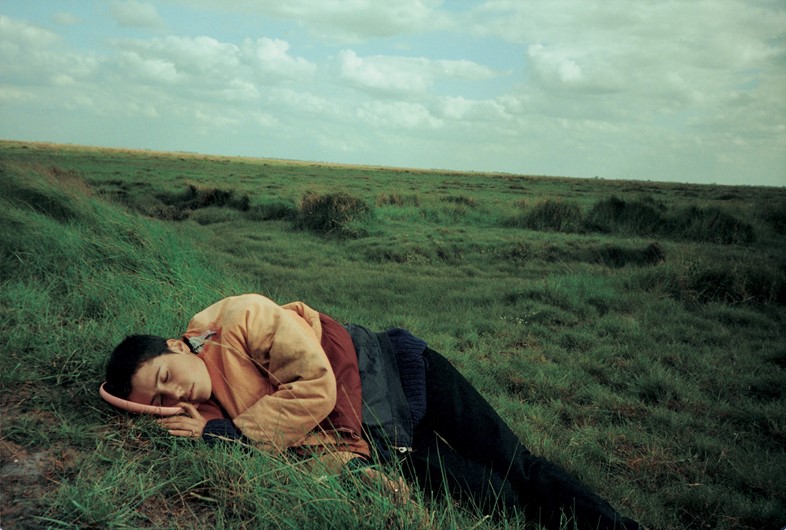
Three Acts by John Divola (2006)
“This is really the book that made me. It was the first thing that I bought when I had a bit of money from Courrèges. When I discovered the Zuma series, it was the [idea of] contrast that I mentioned before that really spoke to me – something basically beautiful, like a sunset, but taken from the window of an abandoned house. I’m not usually a colour person except in nature, as cheesy as it sounds, like the sea, the sunset, flowers. And this book is an example of that. Each time John Divola went back, the house was more broken or tagged or people had squatted so there were traces of life. But no matter what, there was always this infinite point of view of the sea. I love that he went back again and again and again. I love serial images as it’s kind of like the Courrèges work. It may feel the same from afar but up close it’s always different. Life is always evolving.”
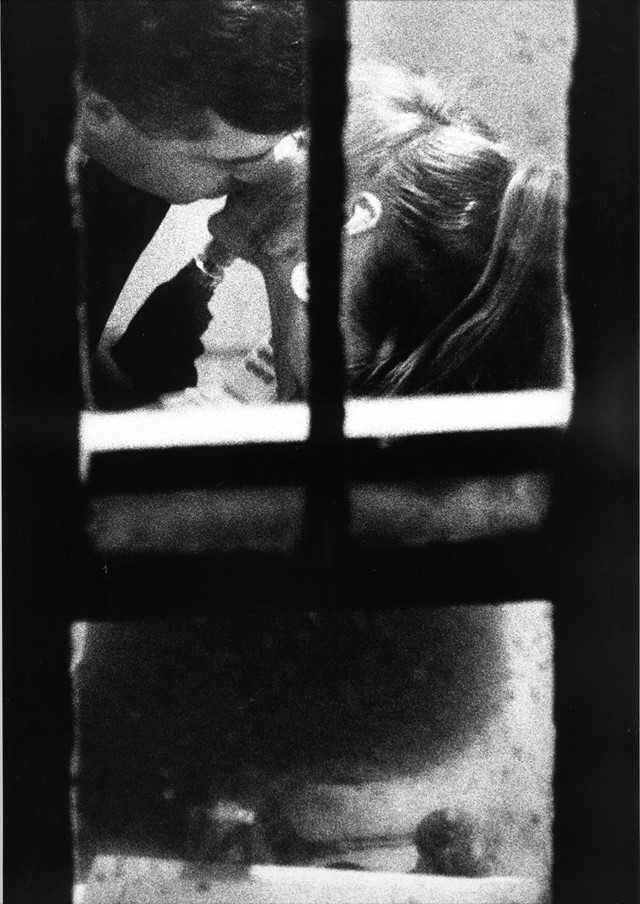
Dirty Windows by Merry Alpern (1995)
“Merry Alpern is another woman that I love – her images are so surprising, from a sort of voyeuristic point of view. Dirty Windows is a little black book of photographs of a tiny window in front of the studio she was renting on Wall Street. The window looked into a place owned by a sex worker. Merry took really beautiful photos of different scenes through this window, making her own story and developing a relationship with the woman without actually knowing her. I think we are always attracted by things that happen behind closed doors. I mean, I definitely was as a kid – I always wanted to see what was happening in this huge club next to my house when I was young and couldn’t get in. There’s curiosity and a sense of something forbidden in her photographs.”
Read Another Man’s interview with Merry Alpern here.
The Sluts (Salopes) by Dennis Cooper (2004)
“I’m really attracted by US writers. And Dennis Cooper is a queer writer that I discovered quite late in life. What I love about this book is that it’s actually really an investigation. It’s a mysterious person in the gay chat sphere that you discover through all the things that different people are saying about him, but you never have his point of view. And the scene is happening in a world that’s never really represented in classical literature. And I think that’s what I love about this book. Dennis Cooper is very raw but also very radical – and I think that I’m affected by the radicality of the novel’s form and structure.”
The Courrèges and Dizonord pop-up is open until 25 February 2024 at 119 rue Vieille du Temple, Paris 75003.
